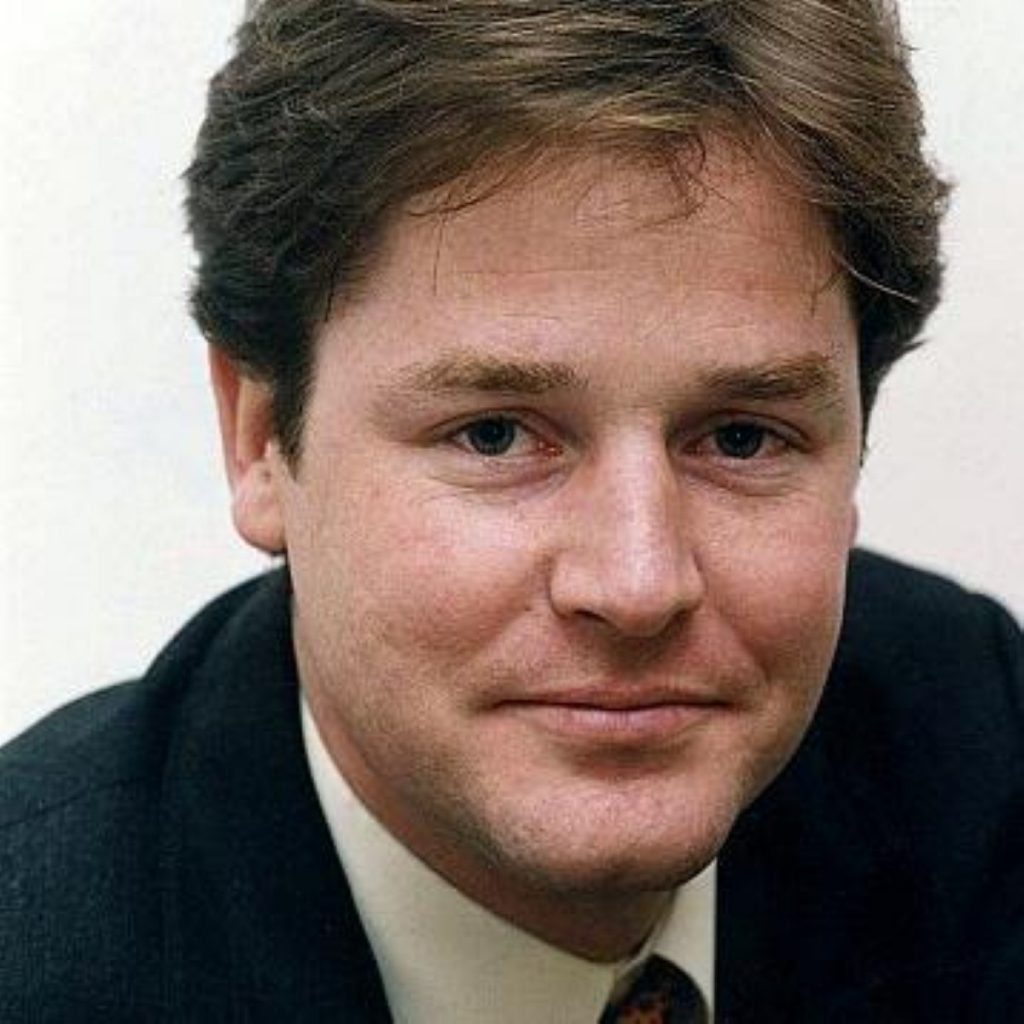Nick Clegg NHS speech in full
We all know how important the NHS is to the British people.
It isn’t just a system; it’s isn’t just a service.
The NHS says something about who we are: a nation that cares for its citizens when they need it, whatever their means.
It’s a people’s health service. Paid for by the people, owned by the people, and dedicated to the people.


So the NHS debate has never just been about policy.
It’s about our values, our identity.
That’s why there’s been so much passion, so much feeling, throughout this exercise. And that should give us all reason to be proud. Because it shows we care.
Where we do all agree is that the NHS needs to change. For all the reasons David talked about, the question has never been whether to reform, but how to reform.
We didn’t get that right straight away. But you told us what to do differently. We listened. And now we have a plan I hope we can all get behind.
You told us you were worried about privatisation through the back door.
So we have made that impossible.
Yes, diversity can drive up quality and increase choice, and the NHS has always had a mix of providers, but competition will not be encouraged for its own sake.
We’re introducing additional safeguards on price competition and cherry-picking, as well as making it illegal, now and in the future, to favour the private sector – or indeed any type of provider.
What matters is what works for patients – getting the right provider, doing the best job.
You told us the different bits of the NHS need to be better joined up, so we’re putting integration at the heart of our reforms.
Patients aren’t happy being sent here, there and everywhere for the same condition. Feeling like no one has a handle on the overall picture. That’s why integration will now be at the top of Monitor’s agenda. And there’ll be a strengthened duty on GPs and other professionals to work closely with other local services, like, importantly, social care.
You also told us services should be more accountable to local people, more responsive to local needs. So they will be.
GPs are an important part of the answer, but not all of it. That’s why we wanted elected councillors to sit on Health and Wellbeing boards, and why we will now be giving those boards much more influence over care in their areas.
I also strongly welcome the NHS Future Forum’s recommendation yesterday that local commissioning boundaries should not normally cross those of local authorities, helping us to join up local health and social care services as well.
Finally, you told us not to rush.
The NHS isn’t a machine.
You can’t flick a switch and turn it on and off.
It’s a living, breathing part of our lives.
The NHS is all of us, millions of us – patients, doctors, nurses.
It exists in every single community.
At some point it touches every single one of us.
Reforming an institution like that takes time.
We have to be careful, considered.
It’s too important to get this wrong.
So change will happen at the right pace. And that’s why the arbitrary deadlines have gone.
No switch-on-switch-off date for clinician-led commissioning.
Clinical commissioning groups will only take on responsibility for budgets by April 2013 if they are ready and willing. If not, the NHS Commissioning Board will do so on their behalf, until they can do it themselves.
No overnight, universal extension of Any Qualified Provider.
Any Qualified Provider gives patients their pick of licensed providers within the NHS and, where it exists already, it’s working well, providing much greater choice, for example, for hundreds of thousands of patients needing operations every year.
But we shouldn’t pretend it works everywhere, and we should extend it in a more phased, more sensible way, starting next April. Driven by patient priorities and beginning with community services, including mental health.
And, while we’re on deadlines: no rushing the legislation through Parliament. We paused the Bill to get this right. Now that we’ve changed it, the Bill will go back to Committee in the House of Commons, so that MPs – who represent millions of patients – can scrutinise it properly.
We’ve listened, we’ve learned, and we’re improving our plans for the NHS.
Yes to patient choice. No to privatisation.
Yes to giving nurses, hospital doctors and family doctors more say in your care.
No to heavy-handed, top-down restructuring of the NHS.
The right reforms – much needed reforms – at the right pace. Evolution, not revolution.
I want to thank the NHS Future Forum for the excellent report they produced for the three of us.
Professor Field’s opening letter is the best description I have read in a long time of everything we cherish about our NHS, ss well as the task we face in meeting the challenges ahead.
And I want to thank every patient, every clinician, every NHS manager, every nurse who told us where we didn’t quite get it right the first time…
And where our proposals could be improved.
I know that many of those people are now eager for us to get on with this. Pausing the legislation was an unusual step, but this is a Government that does things differently. That listens to people. That won’t take risks with something as important as our NHS.
And it’s a different kind of Government too – a coalition, where different voices are heard. Where we’re not afraid to disagree, to have the debate, to bring together the best of our ideas.
That’s coalition; that’s good government.
It’s how you take the right decisions…
And it’s how we’re protecting our NHS.

